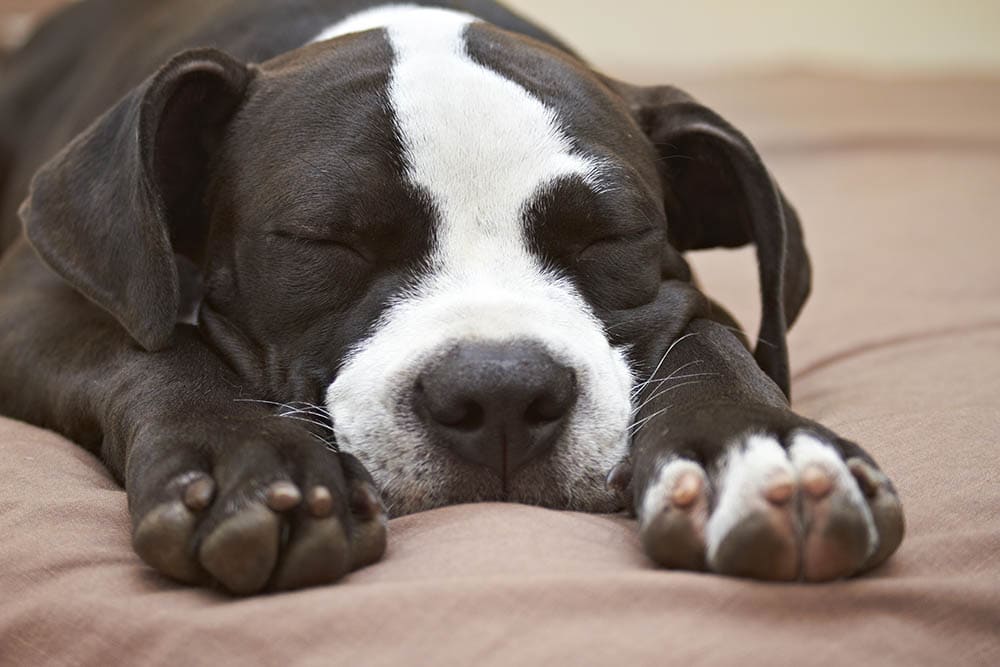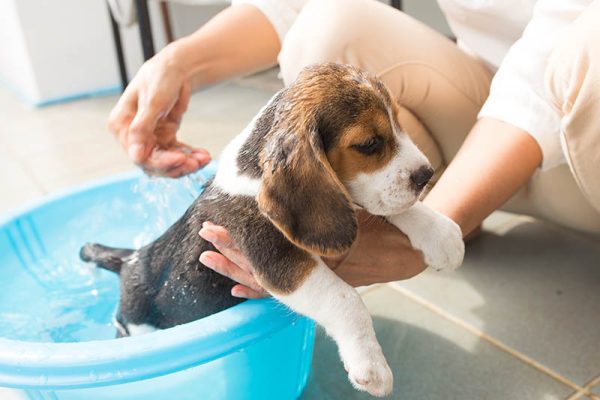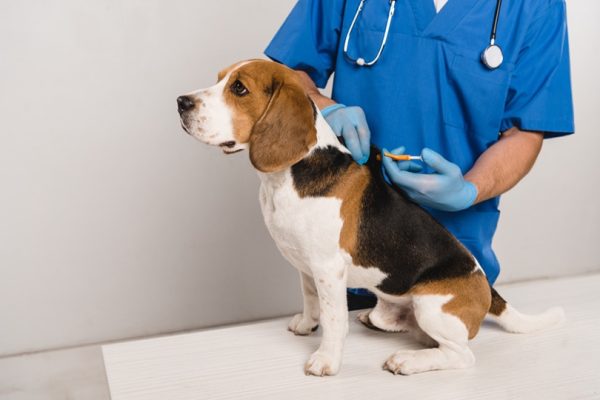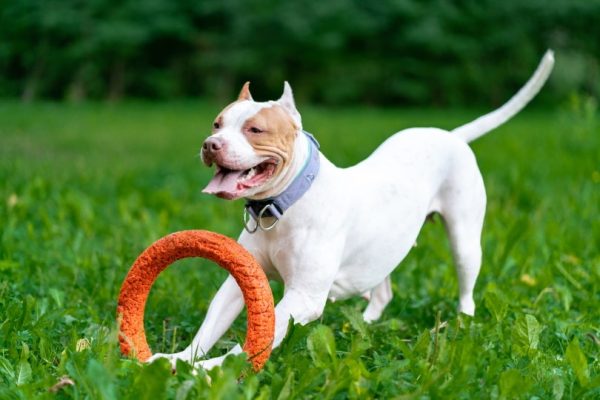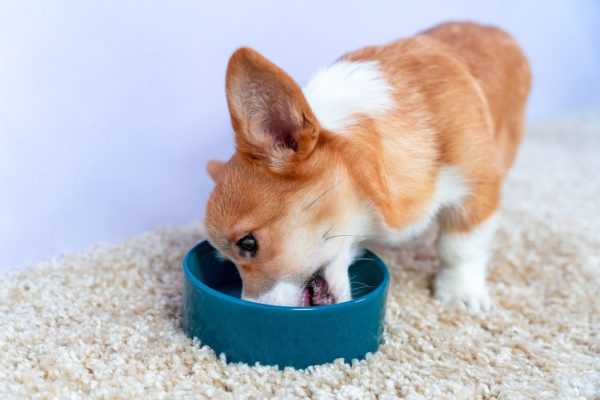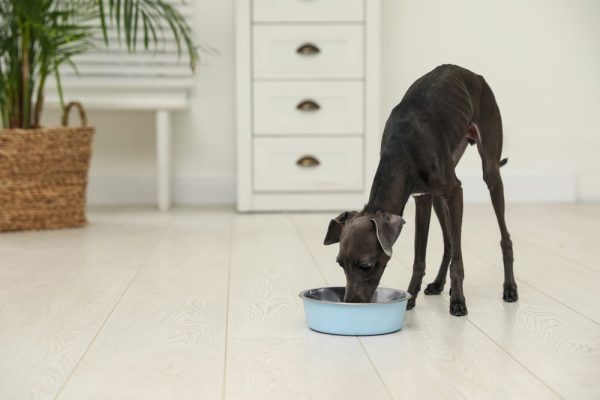Having a new puppy in the home is a fun time for every family member. You get to enjoy all the puppy kisses while the kids have a new playmate to help run off their extra energy. While a new puppy is a joyous family addition, there are instances when you’ll find yourself getting worried as a pet parent. One such time is when you find your new puppy breathing fast while they are sleeping.
Hearing your puppy’s breathing race while they are resting is terrifying. However, it doesn’t always mean something is wrong. In fact, there are several physiological (normal) reasons your pup may be breathing fast in their sleep, including playing before they doze off, the temperature where they are sleeping, and even dreams. Of course, while those reasons aren’t causes for concern, some things can cause rapid breathing during sleep that should be checked by your pup’s veterinarian.
Let’s take a look at why your puppy could be breathing fast while sleeping so you can better determine what’s going on with your new fur baby.

Understanding Your Puppy’s Respiration
Before we look at the reasons your puppy is breathing so fast while they sleep, we need to take a good look at normal puppy respiration. When a puppy is at rest, their respiratory rate should fall between 10 to 15 breaths per minute. Lower rates are possible; however, you should always consult with your vet if you are concerned about your puppy’s breathing rate.
If you need to speak with a vet but can't get to one, head over to PangoVet. It's our online service where you can talk to a vet online and get the advice you need for your dog — all at an affordable price!

The first thing you should do if your puppy’s breathing doesn’t seem right while they are asleep is check their respiration rate. To do this, make sure your puppy is truly asleep and not just lying down to rest. If your pup is snoozing deeply, set yourself a timer for 1 minute and count how many times the puppy’s chest rises and falls while they breathe. This is a whole breathing cycle and should be counted as “one.” This will let you know whether your puppy is truly breathing faster than normal or simply sleeping well.
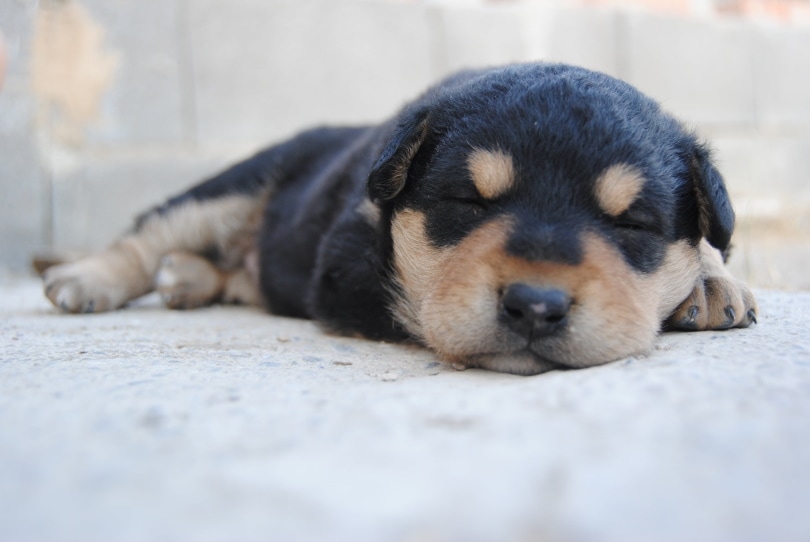
Common Yet Normal Reasons Why Your Puppy Is Breathing Fast While Sleeping
Now that you understand what your puppy’s normal respiration rate should be, let’s take a look at the reasons your new pooch could be breathing faster than normal.
1. Play and Exercise
A puppy playing or exercising before falling asleep is one of the most common reasons they will breathe fast. Puppies are full of energy. They spend a lot of their time playing with toys, running through the backyard, and exploring the world around them. All this activity means the puppy needs more oxygen to compensate for the higher demand and they also need to release all the carbon dioxide that has built up in their bodies so their cells can be replenished. This type of breathing after a hard day of playing is normal for puppies and isn’t a cause for concern. You’ll notice that after a bit of rest, usually 10 to 15 minutes, your puppy’s breathing should return to normal rates.
2. Dreaming
The cutest reason for a puppy breathing fast while they sleep is dreams. Yes, your puppy dreams just like all of us do. When dreaming is the reason for your puppy’s increased breathing while asleep, you’ll often notice other things as well. Your pooch may twitch and jerk. You may even hear them whimper, growl, or even howl. While it’s normal to be concerned when you see your puppy making these motions and sounds, there’s no reason to wake them. However, if you’re worried about their respiratory rate, simply nudge them awake and see if their breathing regulates.
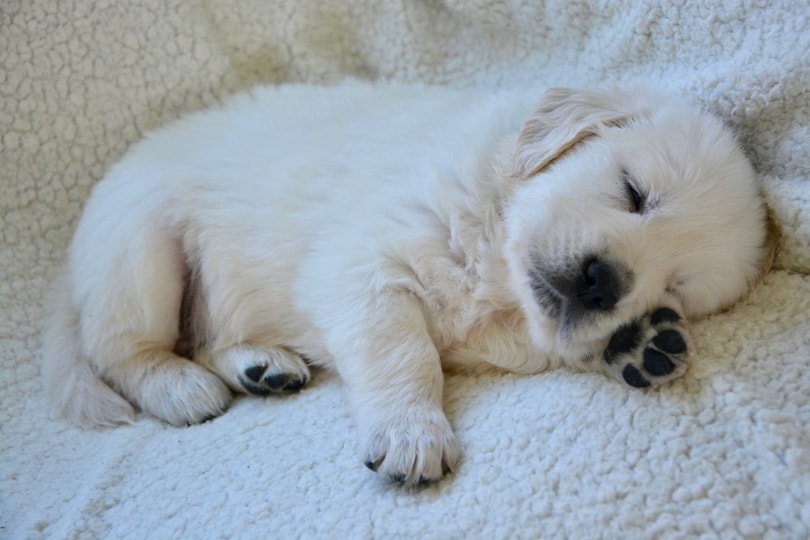
3. Temperature
Panting is a dog’s way of losing that extra body heat. However, puppies are susceptible to heat-related illnesses, such as heat exhaustion and heat stroke. If you notice your pooch breathing heavily and you think the heat is the problem, you should contact your veterinarian immediately. In the meantime, try to help them cool down gradually by turning on the AC, pointing a fan in their direction, or bringing them inside where it’s more comfortable. You should also ensure your puppy has access to plenty of water to avoid getting too hot.
4. Emotions
The life of a puppy can be an emotional rollercoaster. Leaving their mothers and members of their litter, coming to a new home, and meeting their new family can trigger a lot of emotions. Fear, anxiety, and stress cause a puppy’s cortisol levels to rise. Cortisol is the hormone that causes a flight or fight response. Cortisol also raises a puppy’s heart rate. This elevation often results in increased breathing rates. Once your puppy is in a deep sleep, their stress should reduce. You’ll also find that this doesn’t happen as often as your pup gets familiar with their new surroundings.
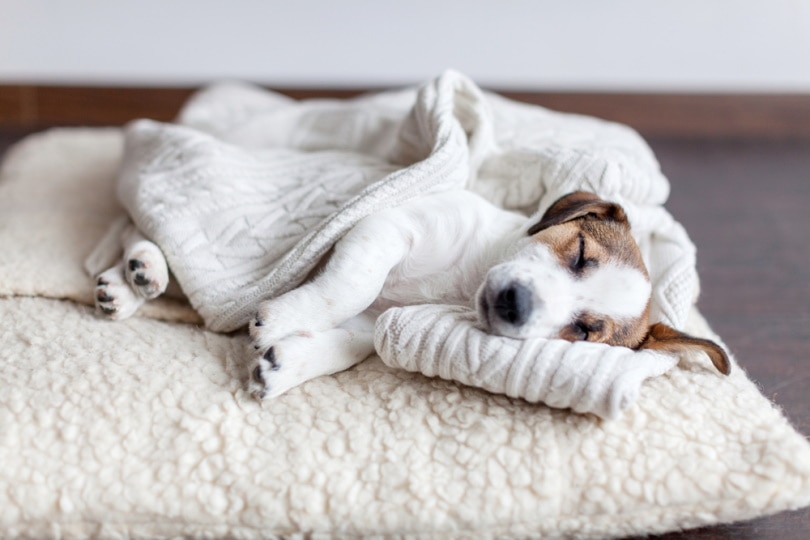
When You Should Worry
While most of the time a puppy breathing fast while they are sleeping isn’t concerning, there are instances where other, more dangerous issues are the underlying cause. As we’ve already mentioned, if you notice your puppy is breathing fast while sleeping and you’ve eliminated causes like dreaming, temperature, play, and stress, monitor their respiratory rate for 60 seconds.
If the puppy is taking more than 30 breaths per minute and it doesn’t subside in 10 to 15 minutes, it could be a cause for concern. When this is the case, check your puppy for other signs of illnesses. Look for noisy breathing, pale gums, nasal discharge, coughing, sneezing, lethargy, loss of appetite, vomiting, diarrhea, weakness, a bloated abdomen, or signs they are in pain. Contact your veterinarian for further advice. Illness in puppies can advance quickly. Being fast to act will give your puppy a better chance at a full recovery from whatever illness is affecting them.
Here are a few other causes as to why your puppy could be breathing fast while sleeping that would require medical attention:
- Pain
- Anemia
- Heart disease
- Lung disease
- Diaphragmatic hernia

Final Thoughts
As you can see, there are multiple reasons why your puppy is breathing so fast while they are sleeping. Thankfully, the most common causes for this aren’t dangerous. However, there are situations where your puppy’s fast breathing can be a sign of something more serious. When you notice your dog’s breathing is labored or faster than it should be, give them a few minutes and record a short video. If nothing changes, contact your vet immediately for expert advice.
Featured Image Credit: dogboxstudio, Shutterstock

